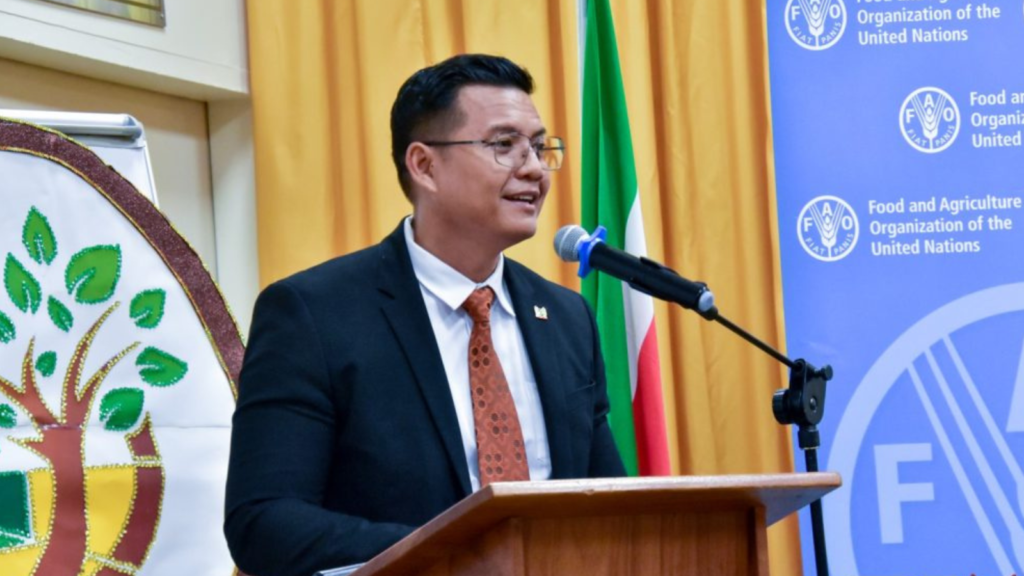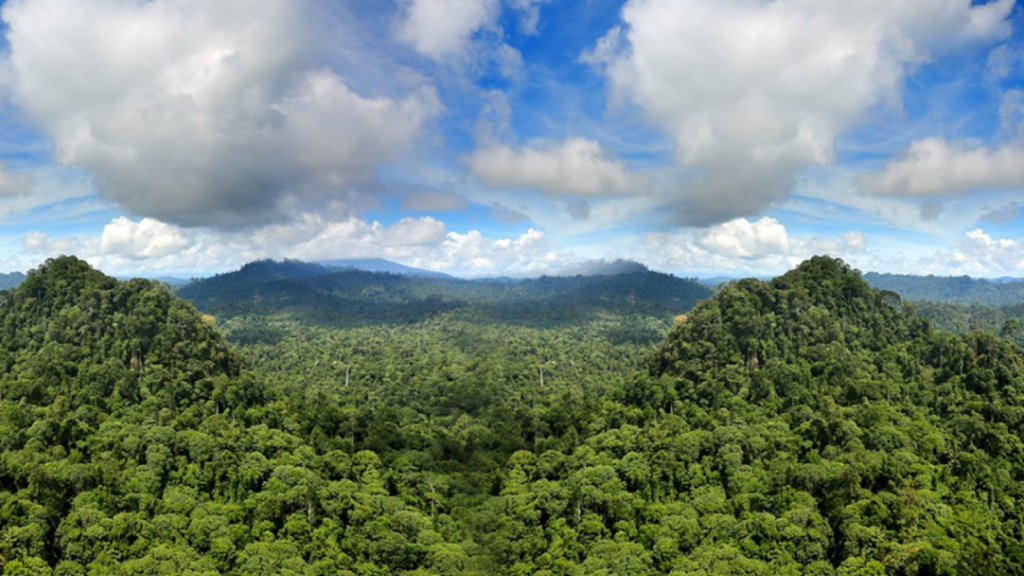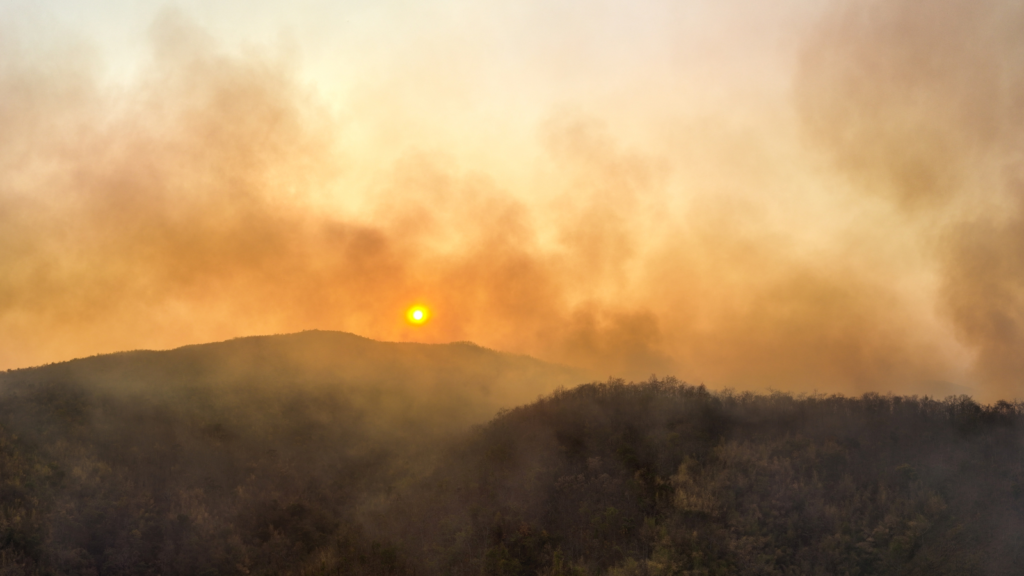With a primary focus on climate finance and Loss and Damage compensation, Suriname is determined to realise its goals at the negotiation table during COP28, happening in Dubai from 30th November to 12th December 2023.
Minister Marciano Dasai from Suriname’s Spatial Planning and Environment Ministry is forming a team to explore how Suriname can trade carbon credits as part of the Paris Agreement. This Agreement is all about countries teaming up to fight climate change by cutting pollution. They use tools like Article 6, which allows countries to trade carbon credits. These credits represent efforts to reduce pollution, and countries can exchange them to meet their goals more effectively.
Suriname is gearing up to join the carbon credit market, but there are concerns.
Gwendolyn Smith, a climate expert at the local arm of Reducing Emissions from deforestation and forest degradation in developing countries (REDD+), worries that Suriname might not be fully prepared. She points out old laws that don’t support trading these credits. There’s a new law in progress, but it has not been talked about in Parliament yet.

Entering the carbon market
With 92.6% forest, Suriname is the country with the highest percentage of forest cover. The country is also one of the few in the world with a carbon-negative status, meaning that more carbon dioxide is absorbed than is emitted. Many therefore wonder when Suriname will be able to earn from this, or in other words, sell carbon credits on the international market.
Smith explained that the market is a trading mechanism in which industrialised countries, corporations, or individuals buy credit from entities that remove or reduce greenhouse gas(GHGs) emissions. This allows the “big polluters” to compensate for their emissions. One carbon credit is equal to one ton of carbon dioxide or the equivalent amount of another GHG.
Suriname has been part of the United Nations REDD+ programme since 2012. Under this framework, developing countries can receive outcome-based payments for their emission reductions when they actively combat deforestation. According to the UNFCCC REDD+ website, Suriname recorded approximately 4.8 million tonnes of carbon dioxide equivalent REDD+ Results in 2021. Environment- Minister Dasai explains that under Article 6.2 of the Paris Agreement, these REDD+ results can be turned into Internationally Transferred Mitigation Outcomes (ITMOs) after validation and accreditation.
Essentially, ITMOs enable countries to collaborate on reducing greenhouse gas emissions by allowing one country to transfer the outcomes of its mitigation efforts to another country, which can then count those outcomes towards its own national targets.
“We have already registered the REDD+ results, the process must now be completed before we can talk about carbon credits. For instance, a national REDD+ Registry needs to be set up,” he says.
Will vulnerable communities benefit from carbon credit sales?
Smith does not agree with the Government’s way of handling the carbon credits conversation. She believes it is a national matter, from which every Surinamese should benefit.
“The start of carbon credit negotiations should involve consulting key stakeholders,” she emphasised.
She expressed concern about the absence of engagement with various societal groups, deeming the process excessively secretive and lacking transparency. Smith highlighted the uncertainty regarding fund allocation and advocated for directing funds back into society, particularly towards indigenous and tribal communities that have safeguarded forests for generations.
Smith strongly advocates for climate funds, including those from carbon markets, to prioritise community needs, especially for vulnerable groups facing the brunt of climate change impacts. Their traditional practices, vital for livelihoods, are threatened by climate change-induced disruptions in seasons, crop failures due to extreme weather, and food insecurity. These communities require funding to bolster resilience against these challenges.

Dynamics of carbon trading
Suriname intends to sell the carbon credits for USD 30 per unit. This has been confirmed by the Minister of Environment. The international price ranges between USD 10 and USD 90 per unit.
According to Smith, the carbon credit market is increasing by 30% per year. She therefore does not think it is yet a favourable time for Suriname to sell all its carbon credits, certainly not for USD 30 per unit which according to her is on the low side. Smith predicts a mega growth of the carbon market until at least the year 2050, which is when the goal of “net zero” must be realised.
This is the point at which GHGs emitted into the atmosphere are less than or equal to the amount removed from the atmosphere. Smith therefore proposes that only a part of the carbon credits be sold now, with the other part being reserved for when a higher price can be obtained.
Dasai explains the dynamics of the “compliance market” in determining carbon prices, especially in developing countries where companies internally trade carbon credits. These nations employ a “cap and trade” system, limiting emissions for companies and compelling them to purchase credits if they surpass their limit, maintaining control over their market. He notes the disparity in credit costs between these developed countries and Suriname, where producing credits is more cost-effective.

He further highlights the challenge faced by countries like Suriname in entering such markets dominated by industrialised nations or companies. Despite the need for emission reductions, these markets often resist external participation. Dasai finds this situation unjust, expressing the difficulty for Suriname to access certain markets despite efforts to reduce emissions. These challenges pose a known obstacle as the country navigates its entry into the carbon markets, a topic that will be discussed at COP28 in finding equitable solutions for participation.
Minister Dasai recognises the challenging timing for Suriname to enter the carbon market. However, he emphasises Suriname’s extreme vulnerability to climate change effects.
“As a country, we must explore financing options to enhance our resilience and adapt to climate change impacts,” he asserts, citing instances like severe water scarcity in some inland areas due to prolonged drought. “We have a choice: wait or proactively explore financing mechanisms to combat climate change,” he concludes.
In the context of COP28 and considering the vulnerability of Suriname and other Caribbean nations to climate change, entry into the carbon market becomes a critical avenue for securing vital resources. These countries, part of developing economies facing disproportionate climate impacts, necessitate fair and just access to climate financing and markets. Climate justice demands equitable participation and support for these vulnerable nations as they strive to build resilience and adapt to the escalating challenges posed by a changing climate.
This story was published through the COP28 Climate Justice Reporting Fellowship and the support of Open Society Foundations.